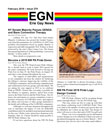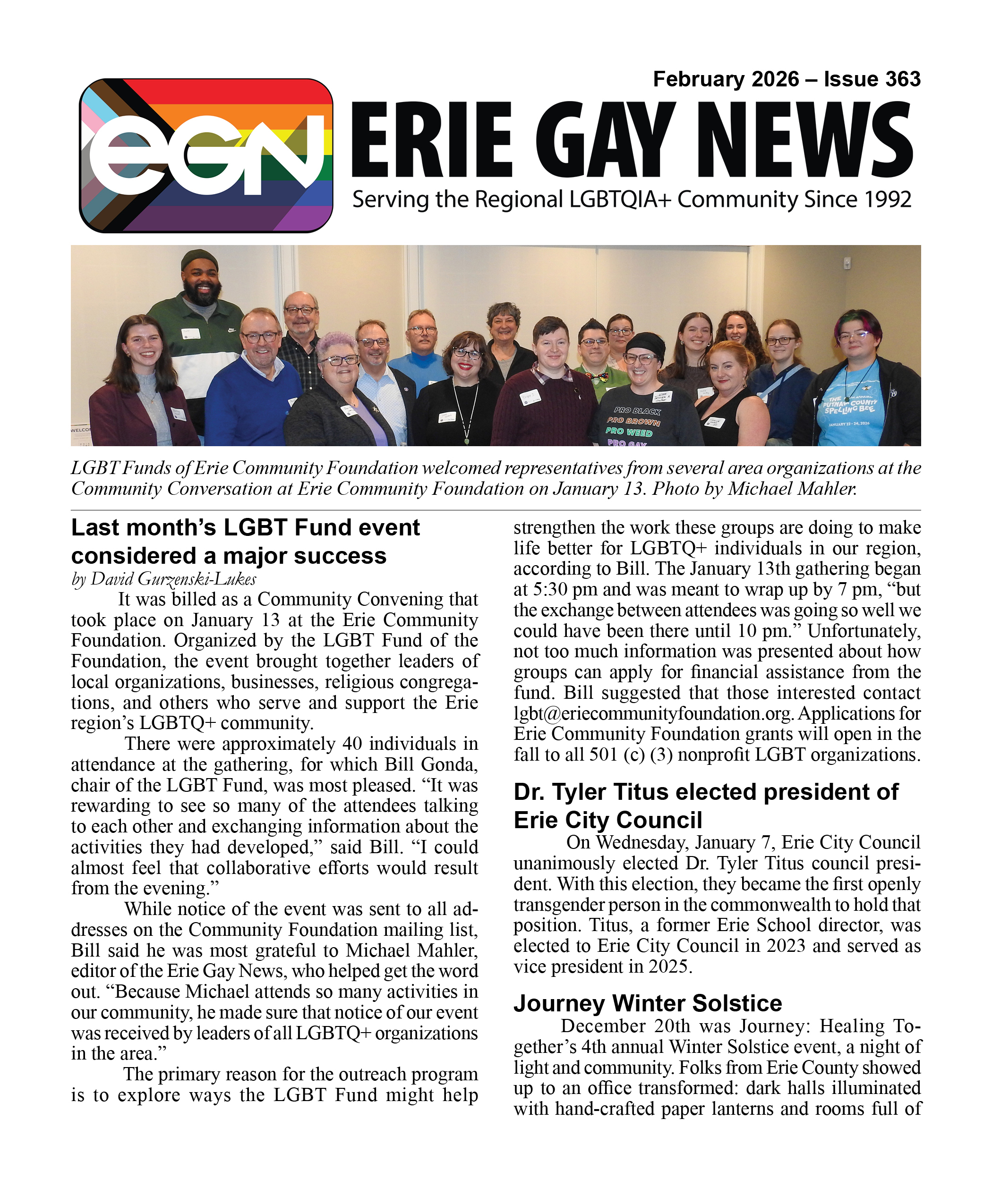I don't do movie reviews, but...
There is a movie that by seeing its trailers and advertising on TV, you'd have no expectation that it has any relevance to you or our community.
At the end of 2018, there were five major movies with major gay characters or themes. "Bohemian Rhapsody," "Boy Erased," "The Favourite," "Can You Ever Forgive Me?", and the one you must see, "The Green Book."
Here's how IMDB (international movie data base) describes the film: "A working-class Italian-American bouncer becomes the driver of an African-American classical pianist on a tour of venues through the 1960s American South."
The title refers to a publication that listed "safe places" that "colored" people could stay and eat or be welcomed in a segregated South of the 1930s-'60s, or as the publisher described it, "The Negro Travelers' Green Book."
Does any of that sound familiar?
Likewise, our community had and still has need for its own green book. The major international LGBT Green Book equivalent is called "Spartacus." In the United States, there is the Damron guide, and in some cities they have local directories.
The need for the Green Book and the LGBT guides are similar. To allow the traveler to feel safe in a world that does not accept us as equals and at times wish to cause us harm. The similarity is overwhelming.
Today, an LGBT traveler can literally be jailed or killed visiting some parts of the world. If you're in a relationship, please do not show any affection toward each other in eastern Europe. Also, make sure you find a hotel that will be safe for an LGBT couple. In the Middle East, you'll need these guides to find safe places in most of the Muslim world, and parts of Asia. Most of Africa could be particularly problematic with the exception of South Africa.
Even in the U.S., I'm not sure I'd feel any safer walking down the street in Mississippi or Alabama holding my husband's hand.
While the Green Book ended publication with the passing of the Civil Rights Act, we in the LGBT community still await the passage of an Equality Act.
And back to the film …
For a film with such a heavy subject matter of discrimination, it's surprising to say that it's a comedy at times, and you will laugh. But, there is a scene that I'm almost sure was written for the LGBT community that will bring you to tears.
The story is based on real events of the two leading characters in the film. It is real, and you will feel that both for the characters, and personally. I'm not going to spoil it for you. You'll want to watch the film for yourself. You won't regret it.
Mark Segal, PGN publisher, is the nation's most-award-winning commentator in LGBT media.
About the Author

|
Mark SegalMark Segal is an American journalist. He is the founder and publisher of Philadelphia Gay News and has won numerous journalism awards for his column "Mark My Words," including best column by The National Newspaper Association, Suburban Newspaper Association and The Society of Professional Journalists. |



